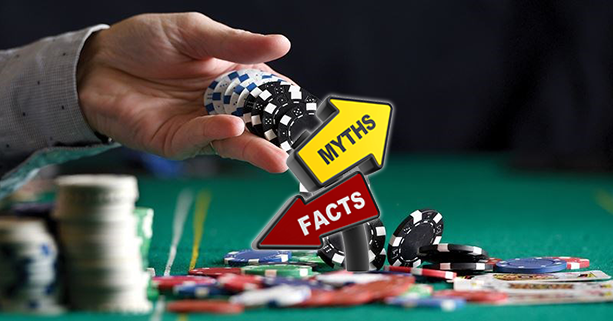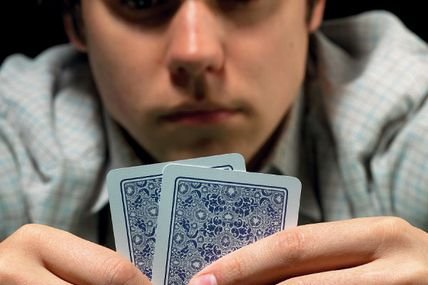
You don’t have to be a sophisticated analyst to recognize how extensively Asians are involved in online gambling. Not when weekly news magazines run cover stories calling some specific country a “gambling nation” or gambling the “new national pastime.”People often found playing games like the slot online versions thanks to the internet rise. While in a country like America if you travel a 500-mile stretch of I-64 between Charleston, West Virginia, and St. Louis (arguably a representative segment of mid-America), billboards and road- side signs inform you of opportunities and urge you to take your chances at video slots (West Virginia), a dog track (West Virginia), three horse tracks (West Virginia and Kentucky), riverboat casinos (Kentucky and Missouri), the Kentucky “Lotto” (with updated jackpot amount), and an “Offtrack Bet- ting Facility” (Indiana). Back to the Asia continent, there are people who used to gamble to get recreational pastime. Not all people behave irresponsibly in gambling, you can visit idn slot and ask anything before playing and gambling and how to not to be outdone by it.
We are a society of gamblers. We are taught early on to take a chance on life, on love, on romance; to cherish equality of opportunity—which means equal chances at even odds on a level playing field; to ask for an even break; to court Lady Luck; to seek our fortune—which means both luck and riches.
We are a culture of gamblers. Salient features of the American value system include not only materialism and competition but also risk as a given of marketplace thinking. Risk is a necessity of entrepreneurial capitalism: the American version of the ancient proverb “Nothing ventured, nothing gained,” is as much an ingrained part of our credo as “In God we trust.” Columnist Jim Hoagland has gone so far as to call the entire American economic enterprise “The Big Casino.” More revealing than that grandiose metaphor is the fact that the financial marketplace has created instruments that are pure gambling, indeed, as close as you can get to point-spread betting this side of your friendly neighborhood bookie. Called “derivatives,” they are traded—bought and sold—though they represent neither tangible properties nor equity in a company. Together with such other vehicles of financial gambling as options and futures, they make up a substantial share of the day-to-day “action” on the market.
And we are a nation of gamblers. In 1998, when more than 60 percent of adult Asians gambled, only 37 percent of registered voters went to the polls. Though there is a higher percentage of gamblers among those who do not vote, those who do vote nevertheless clearly support gambling. The only two incumbent governors who lost reelection bids in 1998 made antigambling positions central to their campaigns (Alabama and South Carolina2), while their fellow Republicans in Illinois and Nevada won governorships with substantial backing from gaming interests. Voters in Missouri, Arizona, and California passed gambling initiatives. Only in Maryland, where the governor opposed slot machines at racetracks, were gambling interests apparently turned back—but the issue was virtually ignored in the campaign, and the governor’s rationale always stressed the importance of the state’s “racing industry,” that is, one of its historical vehicles for gambling.
Let me be clear about what I mean by myth. For the purposes of this discussion I do not mean a story or fabulous legend that serves to explain the otherwise inexplicable. Nor do I mean, in the colloquial usage, simply a lie. I am using the word in the sense of a commonly accepted misconception, a piece of misleading “conventional wisdom” or “common knowledge.” In this sense, the myth that is a main target of this iconoclastic exercise could be called a well-intentioned fallacy rather than a myth, at least in the mental health professions; but it functions as a myth in the culture at large. It is promulgated in the mass media and believed by the populace at large.
What it says is that there is a single pathological condition, “compulsive gambling.” What it implies is that the condition has a distinctive pattern of symptoms and a predictable course, suggesting in turn a single appropriate treatment. Technically classified as an impulse-control disorder—but also presents examples of misapplications and unforeseen consequences of such an exclusive diagnosis. My position is that, although the specific disorder exists (and in some prominent cases, at that), the diagnosis is inappropriate for many, if not most, pathological gamblers.
We will demonstrate many other forms of gambling pathologies, thoroughly refuting the monolithic nature of this myth. But before proceeding with that refutation, I want to set aside several other misleading but popularly embraced notions. These are myths that contribute to massive misunderstandings about gambling in general, and they provide a context for the misunderstandings about pathological gambling in particular.
Myth 1. A compulsive gambler is a compulsive loser.
Myth 2. Things even out: The law of averages.
Myth 3. Gambling is intrinsically evil, immoral, sinful—indeed, one of the Seven Deadly Sins.
Myth 4. Gambling means getting something for nothing and is therefore dishonest and immoral.
Myth 5. Gambling and crime are inextricably interconnected.
– Gambling legislation and jurisprudence make sense
– The war on crime eliminates illegal gambling.
– Legalized gambling drives out illegal gambling.
– Illegal gambling is a subsidiary of organized crime
– Gambling is a victimless crime
Myth 6. The mirror-extremes of motivation:
– Gambling is always just about money.
– Gambling is never just about money.
Myth 7. The United States is officially aware of and concerned about the proliferation of gambling in the country and is in the process of working toward establishing an informed, comprehensive public policy.
Collectively, these myths embody the prevailing state of common “knowledge” about gambling in the culture at large and the conventional wisdom that presides over our attitudes, values, and practices. They must be seen as the empty vessels they are if we are to get a grip on the situation. (My metaphors suggest a kind of cultural hand-eye coordination.) As a nation we gamble more and more, not really knowing what we are about, what risks we run. The more we understand what gambling is, how it works, and what it involves, the better will we be able to guard against the risks it poses to individuals, families, and the society at large. It’s not going to go away; it’s an integral part of our systems and institutions. We must learn to live with it; to be informed, aware, and vigilant; to guard against the pathologies it engenders or signals; and humanely to treat those who fall victim to it. That plural form—pathologies—signals the primary thrust, a debunking of the myth of a single condition that has been mislabeled compulsive gambling.

